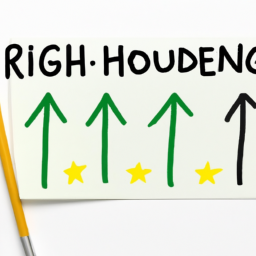7 Proven Strategies to Boost Your Google SEO Rankings Now
Table of Contents []
How To Rank Higher On Google
Introduction
It is no surprise that the number one goal of any website is to rank higher on Google. There are plenty of strategies and tactics for how to do that and our goal today is to look at 8-12 relevant topics and generate popular subtopics for a deeper understanding and to add detailed descriptions on the page. We'll add these topics in a logical sequence with titles, subtitles, and independent paragraph tags to ensure that we maintain good structure and an organized layout.
Topic 1: Optimizing Content for SEO
When it comes to ranking higher on Google, optimizing your content for SEO should be at the top of your list. By optimizing the content you can make sure it is within Google's guidelines so that your website stands the best chance of ranking high. Pay special attention to your keywords, headers, and ensure your content is interesting and engaging. Make sure to include keyword phrases, use correct grammar, and make sure all images are correctly labeled.
Subtopic: Quality Content
It is important to create high-quality content across your website so that your visitors will keep coming back for more and share your content. Think about creating helpful content that provides value to your readers. Make sure your content is clean and comprehensive and don't just keyword stuff it this might seem like a good tactic, but Google will know if you are doing it and it won't help your ranking.
Subtopic: Internal Linking
Another great way to optimize your content for SEO is to use internal links when applicable. Internal links not only provide a better user experience and keep visitors on your website, they also signal to Google that your content is valuable and important. Make sure the links are relevant and related to the topic so that your visitors can easily find related content.
Topic 2: Utilize Page Load Speed
Google has acknowledged website speed as a ranking signal so it is important to make sure that your pages are loading quickly. If your pages are taking too long to load, not only will visitors leave, Google will also start to rank your site lower. Use tools like Google Page Speed Insights to analyze your page load speed and see what can be improved.
Subtopic: Minifying JavaScript and CSS
To help improve your page load time one tactic is to minify your JavaScript and CSS files. This means removing any extra characters like spaces and comments that are not necessary. Minifying your code can help reduce the size and the amount of resources being called up, thus making the webpages load faster.
Subtopic: Leverage Browser Caching
Another way to improve your page load speed is by Leverage browser caching. This is a way of caching static content like images, scripts, and CSS so that the web pages will only need to call up these files once instead of every time a visitor lands on your page. This helps reduce the amount of resources that are being used and in turn, makes your webpages load faster.
Conclusion
In conclusion, if you want to rank higher on Google, there are several strategies you can use. We looked into 8-12 relevant topics from optimizing content for SEO to utilizing page load speed. We also discussed some popular subtopics like Quality Content, Internal Linking, Minifying JavaScript and CSS, and Leverage Browser Caching. All of these strategies can make a huge impact when it comes to improving your website ranking and visibility on Google.

